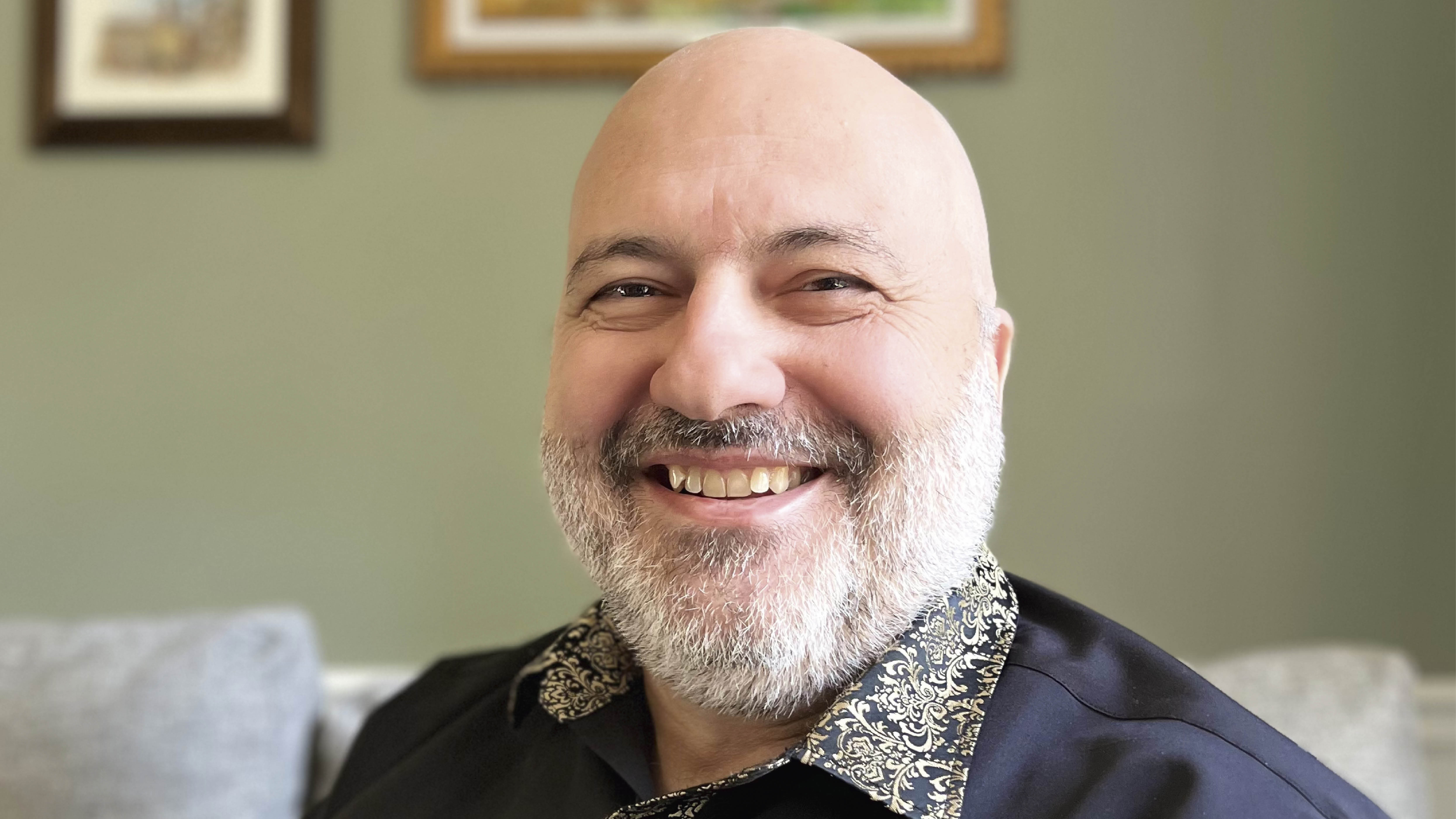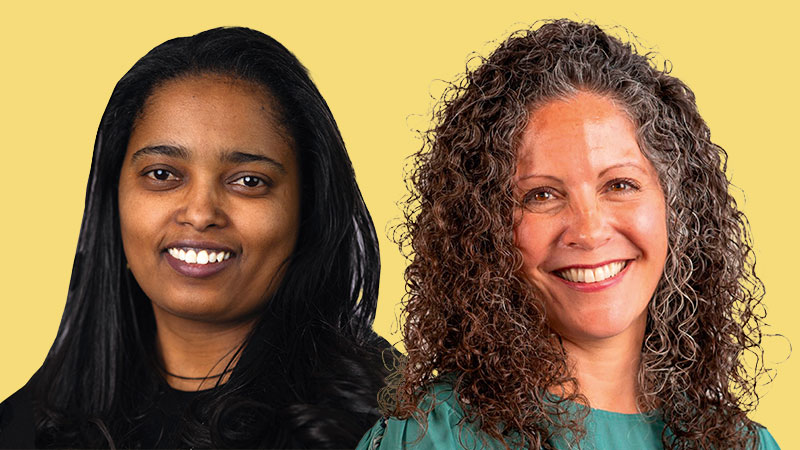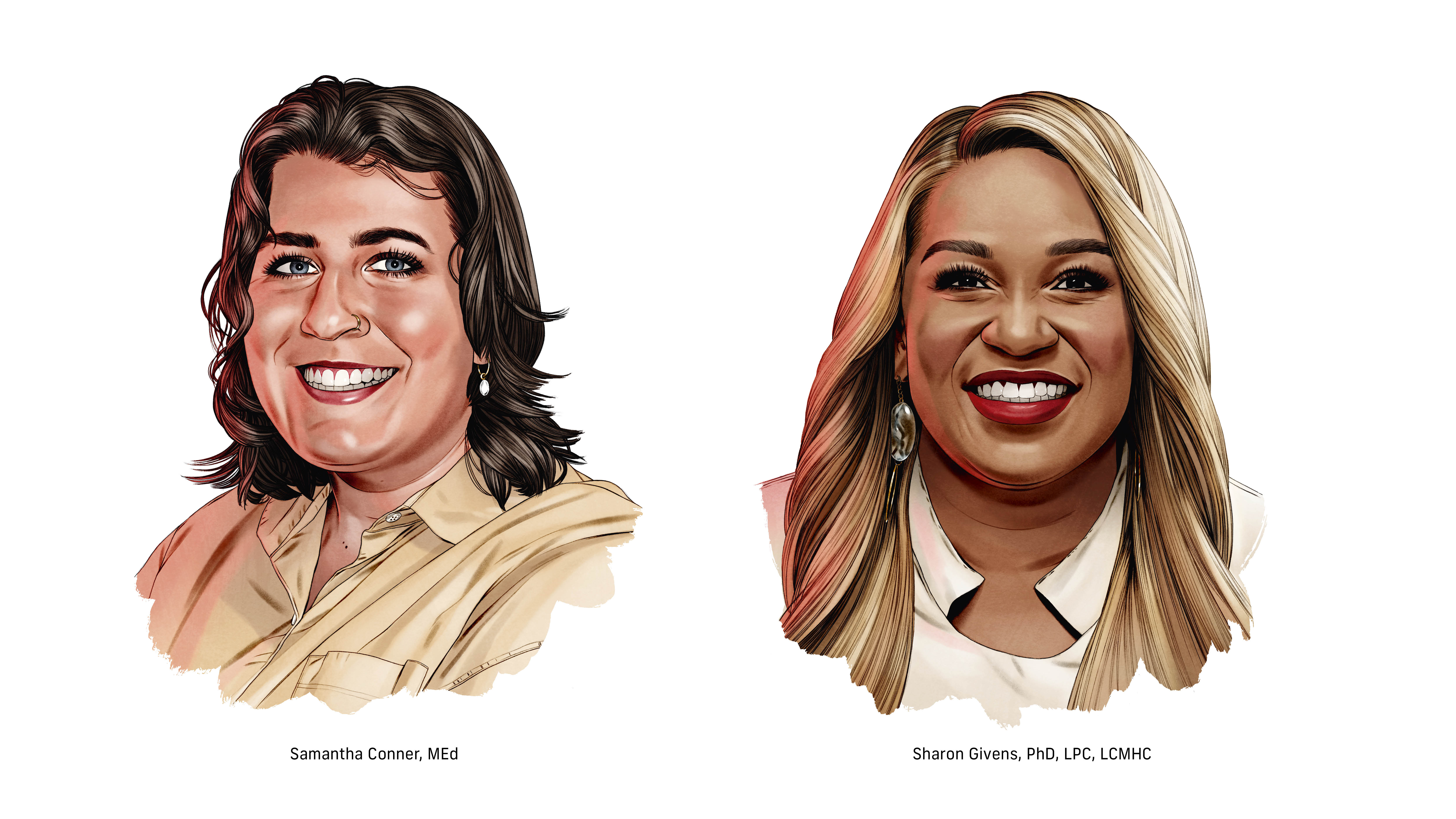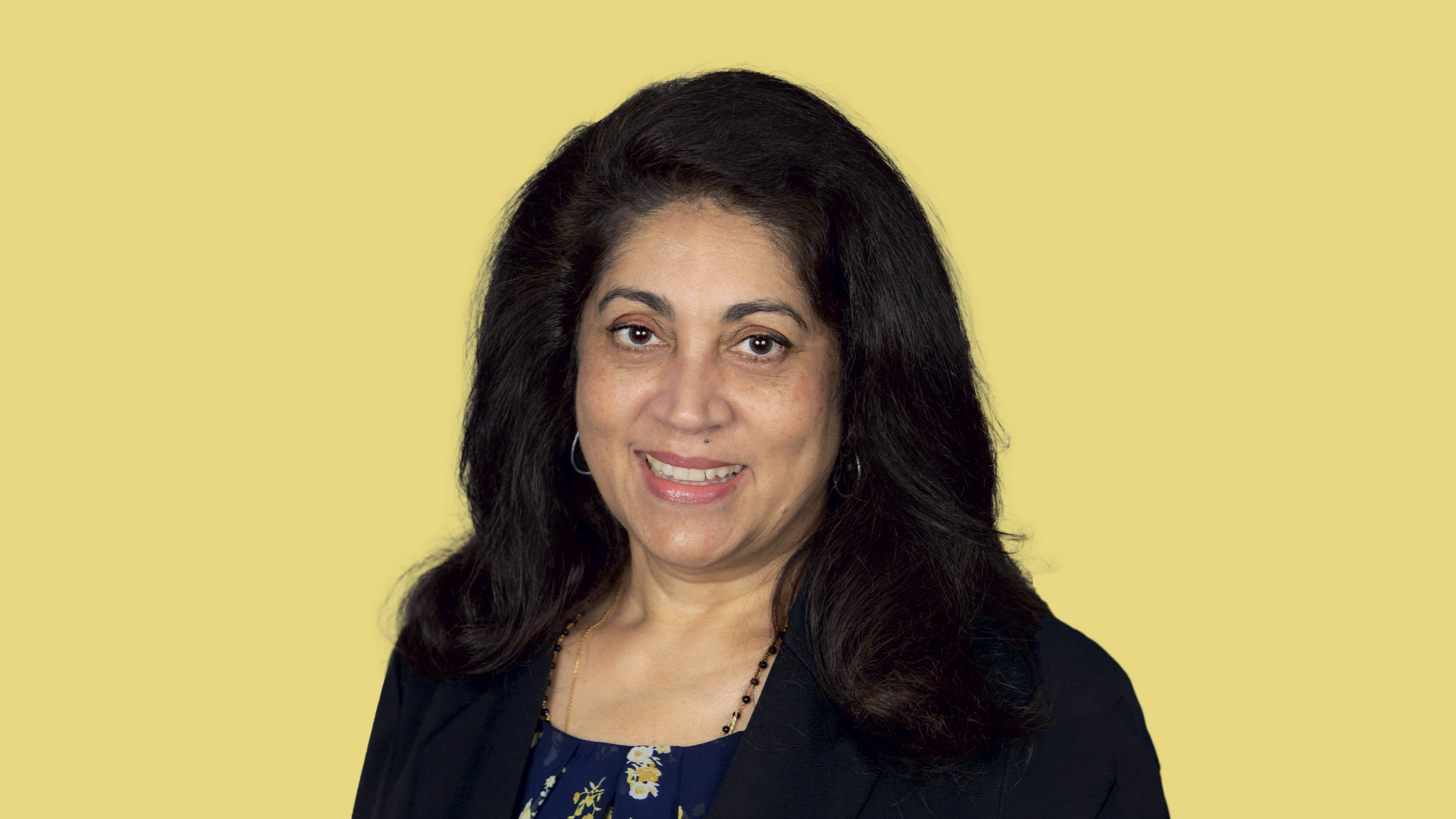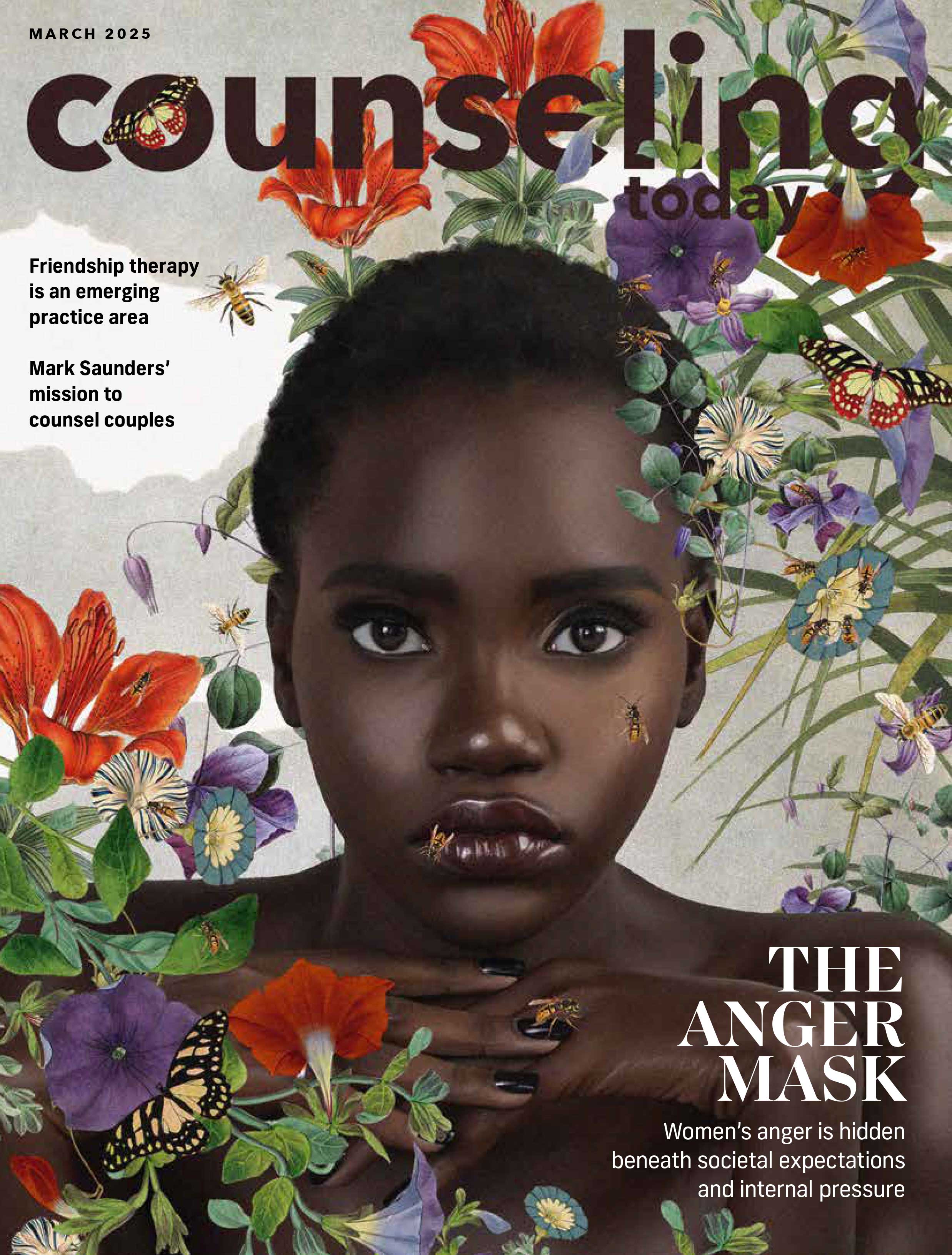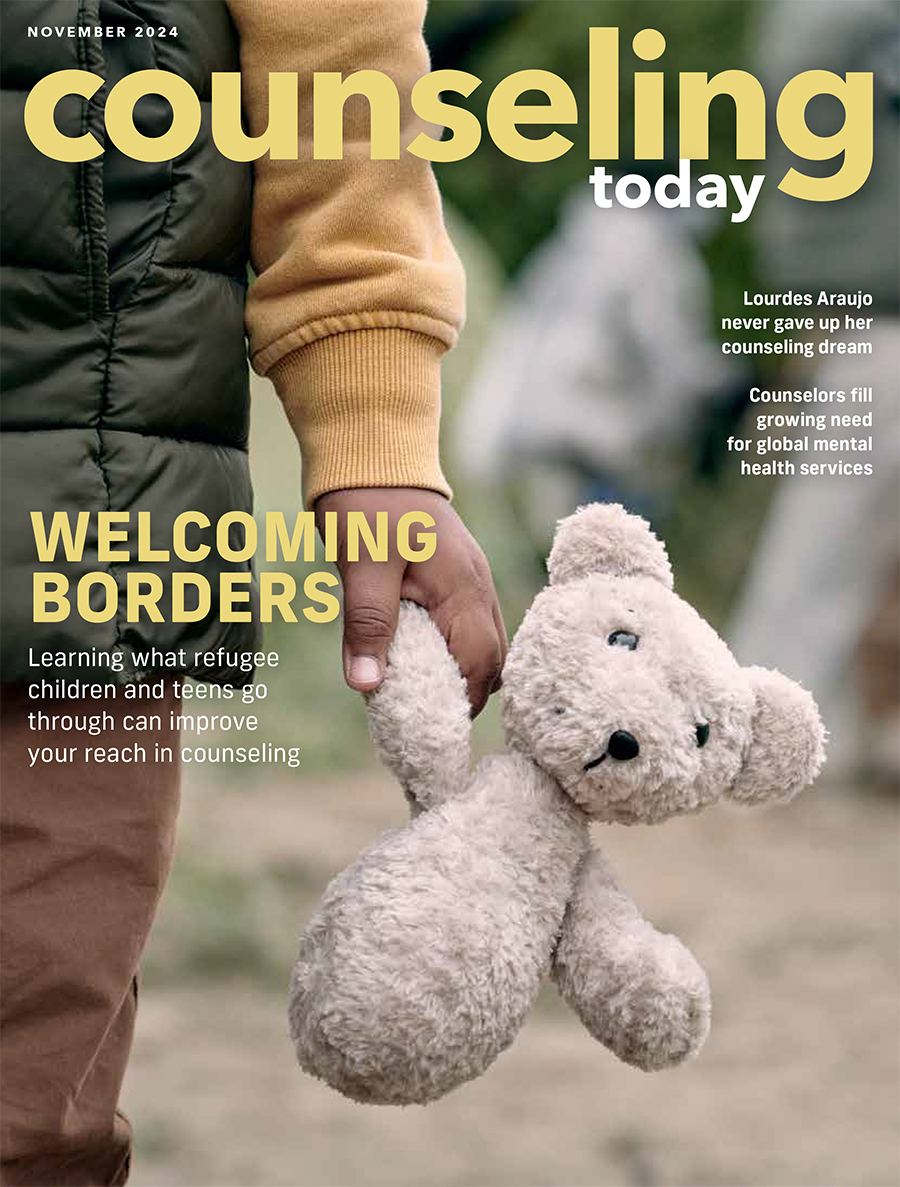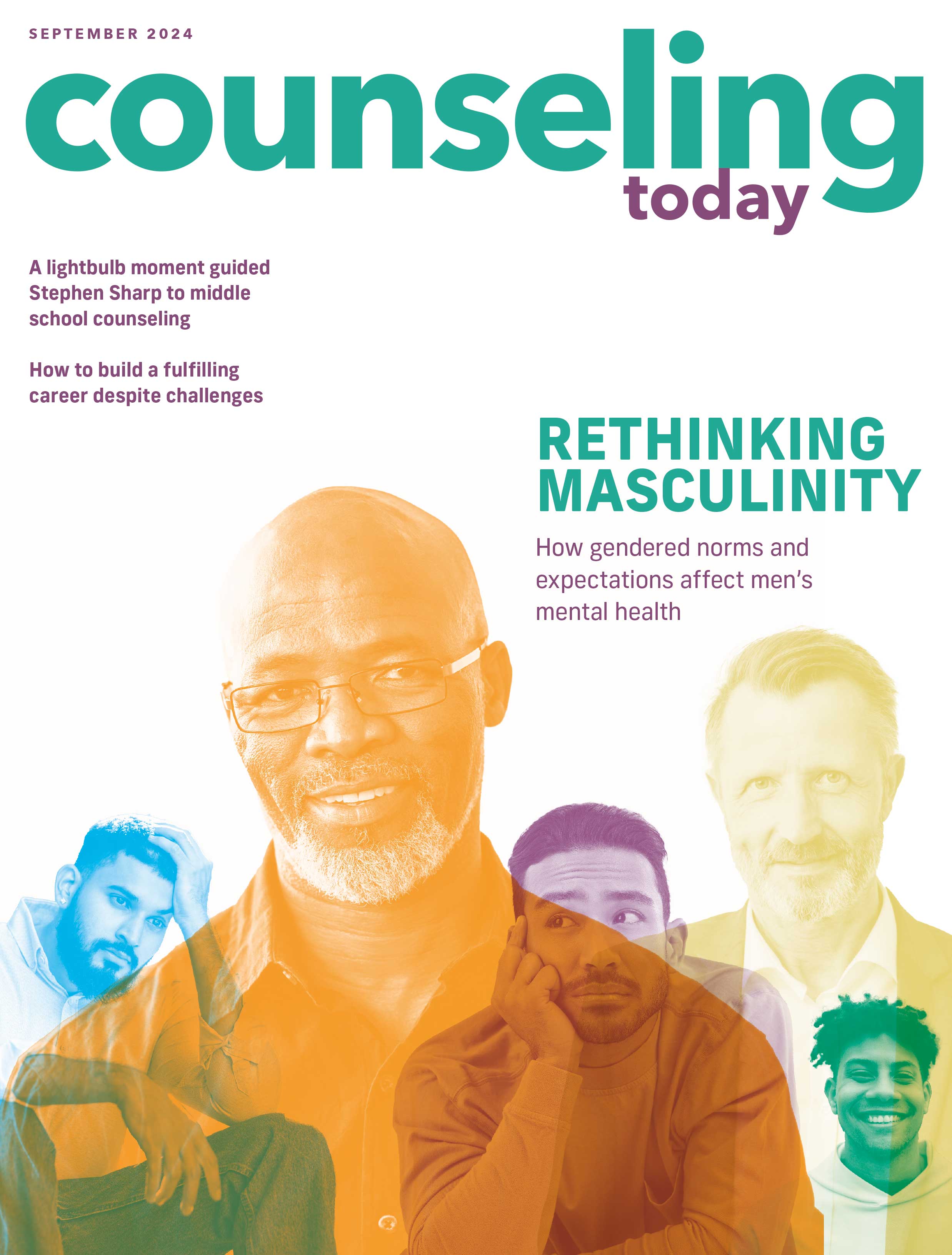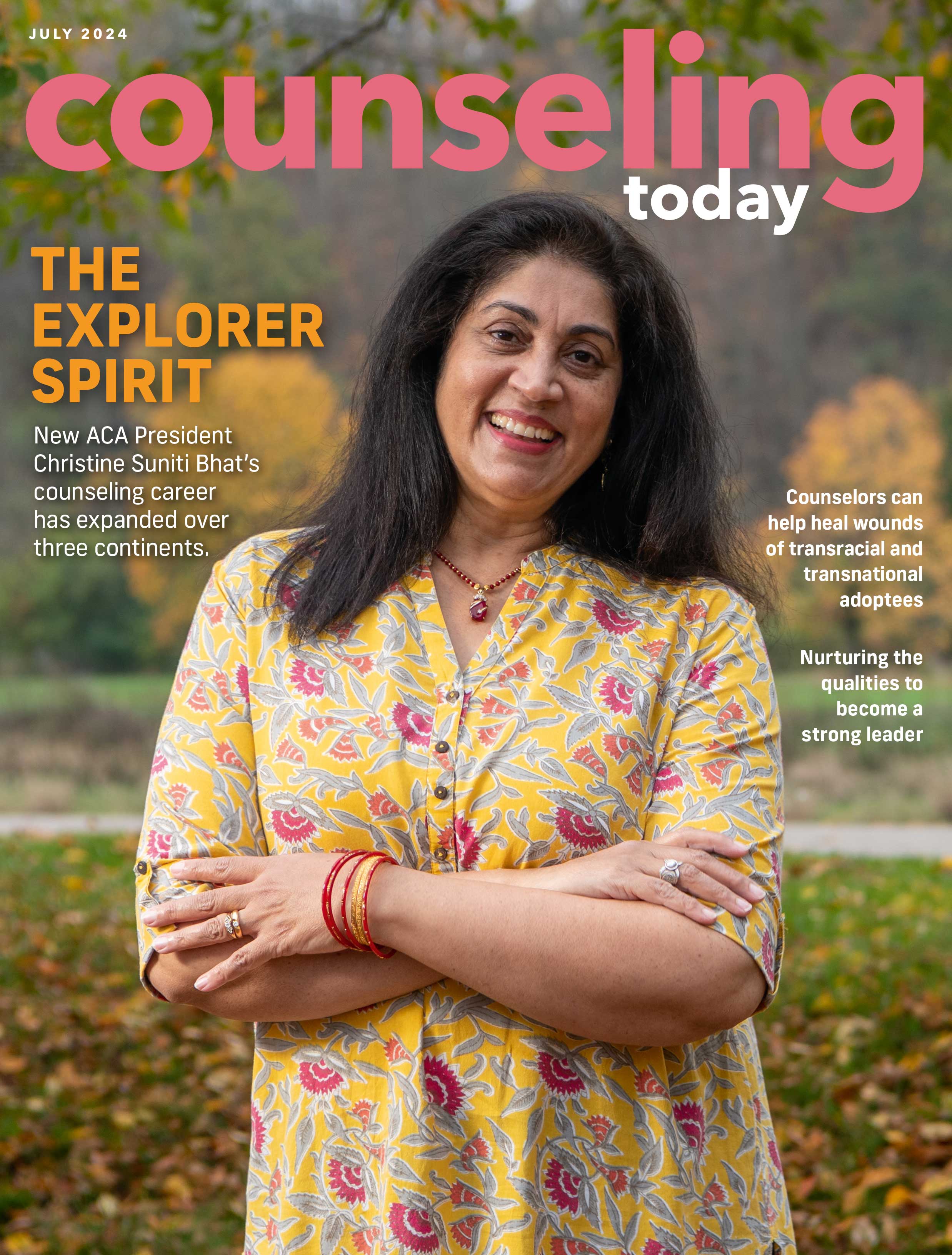
Counseling Among Friends
When friendships crack, some people seek support through friendship counseling, an emerging practice area.
Online Exclusives
-
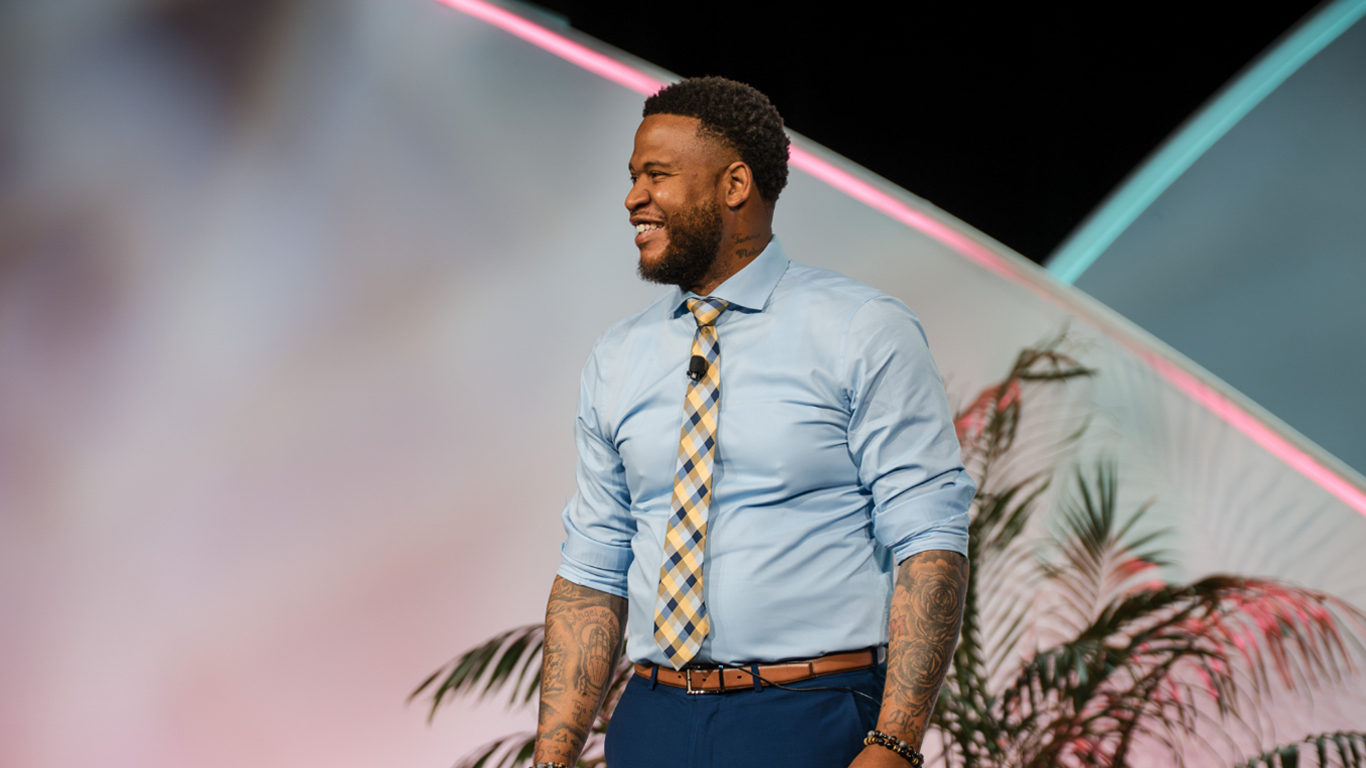 General Session Recap: Dr. Tommie Mabry on Childhood TraumaMarch 2025 |By Caren Clark
General Session Recap: Dr. Tommie Mabry on Childhood TraumaMarch 2025 |By Caren ClarkTommie Mabry, PhD, discusses the power of intervention as a protective factor for youth with adverse childhood experiences.
-
-and-jeanette-betancourt-(right).png?sfvrsn=ffae5bd0_2) General Session Recap: Nourishing Young Children’s Well-BeingMarch 2025 |By Caren Clark
General Session Recap: Nourishing Young Children’s Well-BeingMarch 2025 |By Caren ClarkDay two of the 2025 ACA Conference & Expo featured a discussion of strategies and resources to promote the mental health of children and youth.
-
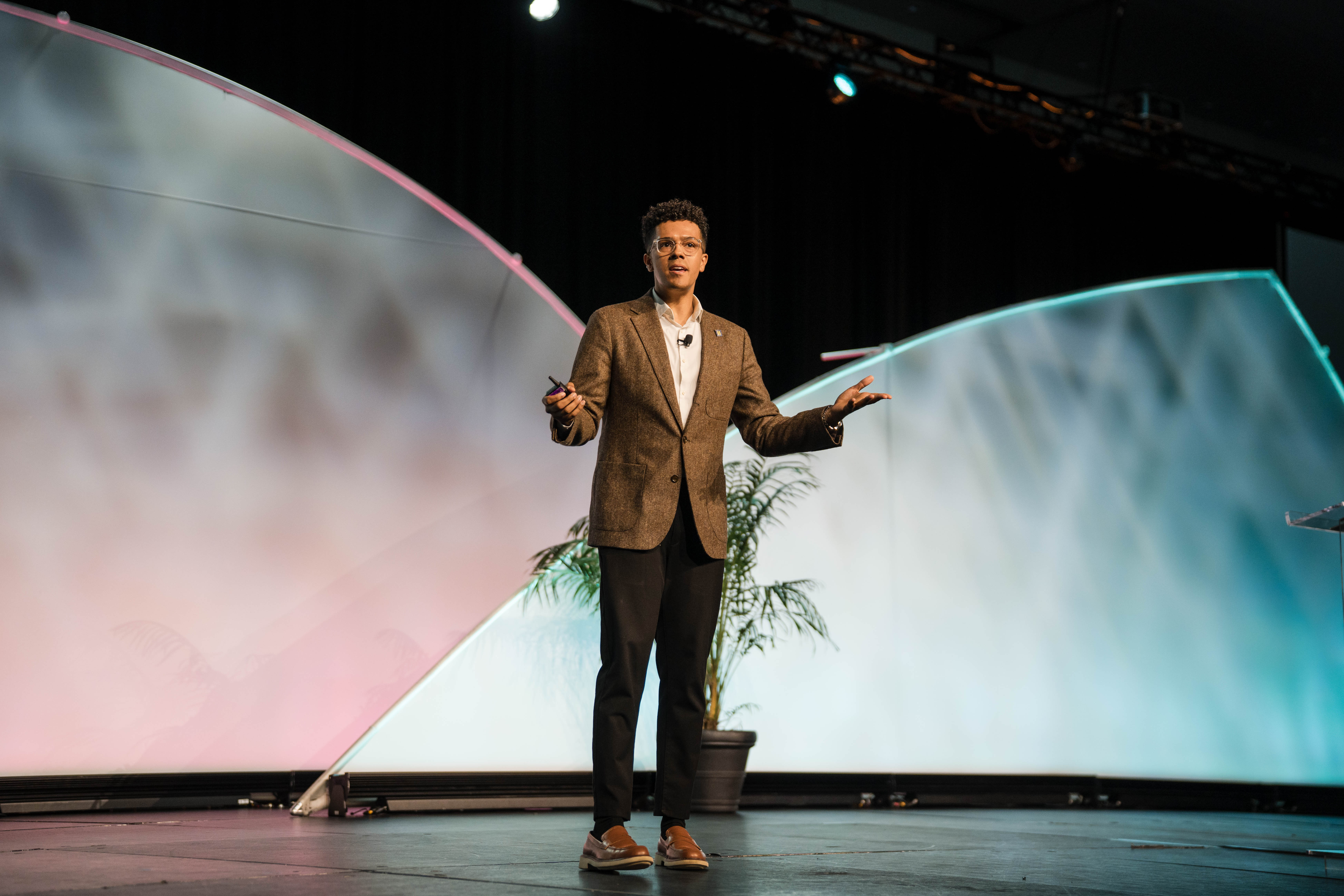 Brandon Wolf Delivers Powerful Opening Keynote at ACA Conference & ExpoMarch 2025 |By Caren Clark
Brandon Wolf Delivers Powerful Opening Keynote at ACA Conference & ExpoMarch 2025 |By Caren ClarkAs harmful rhetoric and policies fuel a growing mental health crisis, professional counselors can be vital advocates for LGBTQ+ youth.
Explore More Online Exclusives
Counseling Today Member Blog
By Michele Kerulis, EdD, LCPC
On July 26, the world joined together in excitement for the 2024 Olympics, a time when the best athletes from around the world compete and celebrate their talents on a global stage. Paris is the official host of the 2024 Games, but the events will take place all over the country from Paris to Tahiti. This year will feature the debut of breaking (or breakdancing) and the return of several newer sports, including skateboarding, sport climbing and surfing.
This year, nearly 600 athletes and even more staff will represent Team USA at the Olympics. For the athletes, this represents a lifetime of dedication, sacrifice and excellence in their chosen sports, and for staff, it represents the elite expertise in their supportive roles. Coaches, athletic trainers, physicians, physical therapists, sport scientists and counselors work together to support the physical and emotional development of Olympians.
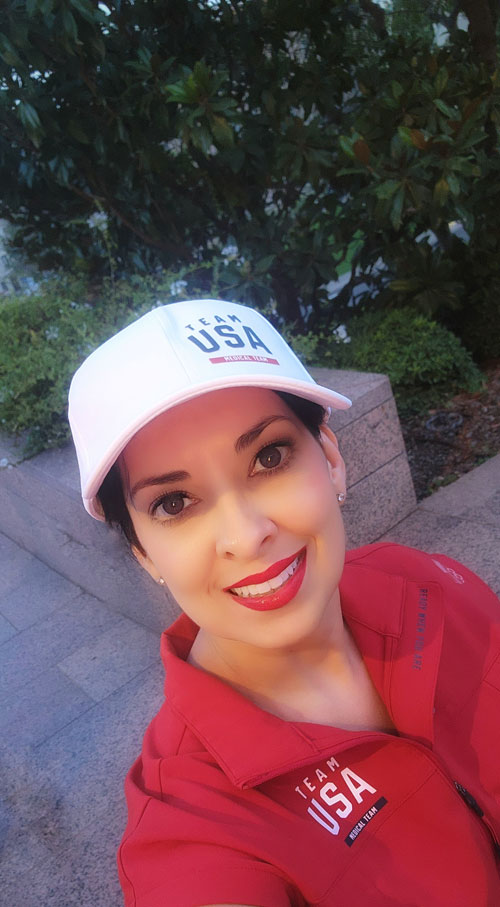
medical provider at the 2024 Paris Olympics.
Mental Health and Athletes
Olympic, professional and college-level athletes all experience unique stressors that can lead to mental health issues, such as anxiety, depression, post-traumatic stress disorder, sleep disorders, suicidal ideations and eating disorders. (See Claudia Reardon’s 2019 article published in the British Journal of Sports Medicine for more on the mental health in elite athletes.) Additionally, Rebecka Ekelund and colleagues, in their 2022 article published in Frontier in Psychology, found that research focused on clinical diagnosis showed a much lower rate of mental illness (4-9%) than research that focused on self-report (16-48%), which suggests that athletes are not always reporting their symptoms.
To help reduce stigma related to mental health issues, the International Olympic Committee (IOC) and the U.S. Olympic and Paralympic Committee (USOPC) have publicly supported initiatives to enhance the well-being and mental health of athletes. In 2019, the IOC published a consensus statement, noting that more must be done to provide mental health resources to both athletes and staff, and the committee recently developed a Mental Health Action Plan that acknowledges that athletes’ mental health needs are as important for their performance and well-being as their physical health needs. The USOPC staffs 15 full-time clinicians who have expertise in athletics and serve Team USA athletes. Additionally, many national governing bodies of sports employ mental health clinicians who travel to the Games as medical staff to assist both staff and athletes.
The Role of Counselors at the Olympics
As one can imagine, being at the Olympics among the best athletes and staff in the world is not only an honor but a high-stakes, high-rewards environment that is paired with hard work, team effort and stress, as noted by Reardon. The presence of mental health counselors can help athletes develop skills that allow them to manage difficult emotions effectively so that they can focus on their sport. To be successful within these environments, counselors must be aware of ethical practices, have cultural competence and utilize a multidisciplinary approach.
Ethical Practice
The ACA Code of Ethics and the Association for Applied Sport Psychology’s ethical code help guide counselors in their practice. In addition to the basics counselors learn in graduate school, they must have advanced knowledge of how to apply ethical practice in unique situations. For example, many Olympic counselors travel, eat meals, attend meetings and stay in the same facilities as athletes. Therefore, they have to know how to set boundaries, obtain private spaces for conversations and maintain professionalism — even during days off.
Confidentiality is another important ethical consideration when working with athletes. Olympic athletes and staff might talk with a counselor about feeling homesick, cognitive anxiety related to competing, issues with teammates or managing symptoms of an existing mental health diagnosis. It is good practice to maintain confidentiality — staying within the guidelines of the U.S Center for SafeSport — unless these conversations pose a risk of harm to the person or others.
Developing professional, trusting relationships helps athletes and staff feel comfortable approaching the counselor to discuss both minor and major mental health concerns. Then counselors will be in a position to help them cope with their emotions and develop a plan to decrease symptoms and increase focus on competition.
Cultural Competence
The Olympics bring people together from all over the world to showcase national pride and athletic excellence, and each sport has its own rules, norms, expectations and culture. Therefore, counselors need to understand the cultural context in which athletes operate so they are equipped to provide culturally competent care. For example, isolating oneself daily could be an indication of depressive symptoms, but if you are an Olympic athlete, then isolation may be the time you use psychological skills, like visualization or meditation, to help prepare for competition. Understanding the cultural context of behaviors will help counselors gain the knowledge of when behaviors are healthy and normative and when behaviors might be a sign of a deeper issue.
Multidisciplinary Approach
Working in an Olympic setting allows for multidisciplinary collaboration between professionals who are experts in their fields. This includes athletic trainers, physical therapists, sports scientists, chefs, coaches, physicians, counselors and so many more. Counselors in the sports world understand how each support staff’s role relates to the overall success of the team. The ability to facilitate communication, manage high stress situations, and shift focus quickly and effectively are skills counselors at the Olympics use every day. When working with an elite multidisciplinary team, counselors are aware of how confidentiality guidelines impact one’s ability to participate in staff meetings, and they are skilled at providing a supportive presence without disclosing private conversations.
To be successful, multidisciplinary teams need to discuss each person’s role and responsibilities, and counselors can educate the group about clinical boundaries, privacy and professional ethics. These conversations can help others gain a better understanding of how professional counselors operate within sports.
A Growing Awareness of Mental Health
Working in an elite sporting environment requires advanced professionalism, knowledge and ethical practice to ensure the mental health and wellness of athletes and staff. Olympic athletes work their whole lives on their athletic skills for a chance to compete against the best in the world, and now, more are working with counselors to enhance their emotional skills. The IOC, USOPC and athletes have publicly acknowledged the importance of mental health providers and have created space for them to be present and part of the medical team. With ongoing support, counselors can work together to decrease stigma and increase the occurrence of more public conversations about the lifelong benefit of learning and growing through counseling.
Michele Kerulis, EdD, LCPC, is a clinical associate professor of counseling at the Family Institute at Northwestern University and specializes in general mental health, sports and exercise, and lifestyle and wellness. She is also a certified mental performance consultant and a Team USA medical provider at the 2024 Olympics.
Note: Opinions expressed and statements made in this blog do not necessarily represent the policies or opinions of ACA and its editors.
Search CT Articles
Current Issue
Share Your Thoughts
Sign Up for Updates
Keep up to date on the latest in counseling practice. Sign up to receive email updates from Counseling Today.
CT on YouTube
Download Recent Issues
ACA members receive access to past full issues of Counseling Today. Log in to download copies from the archive.

